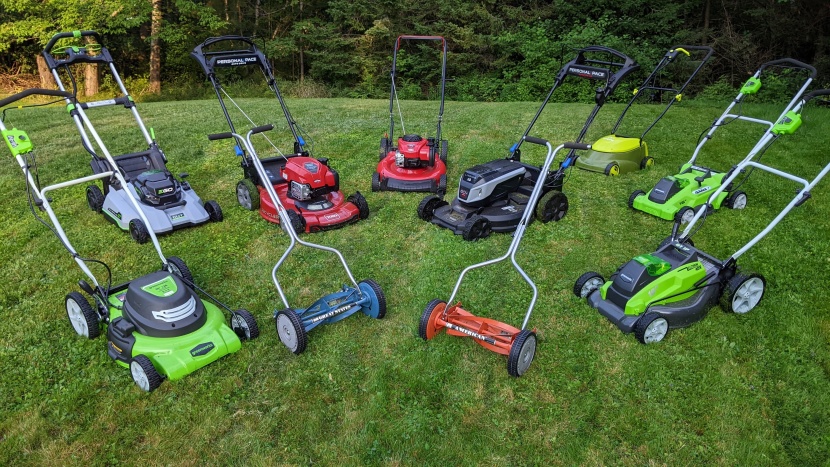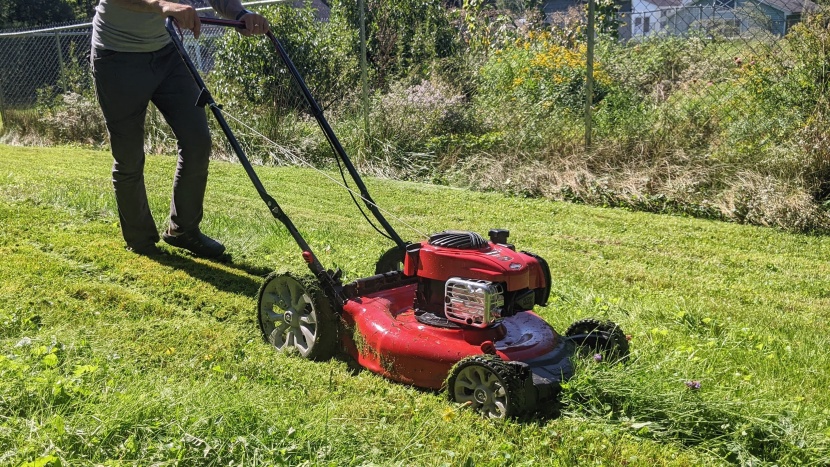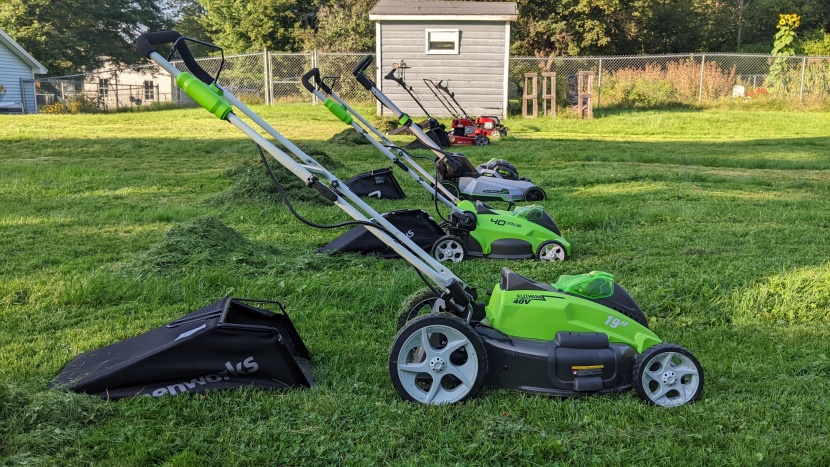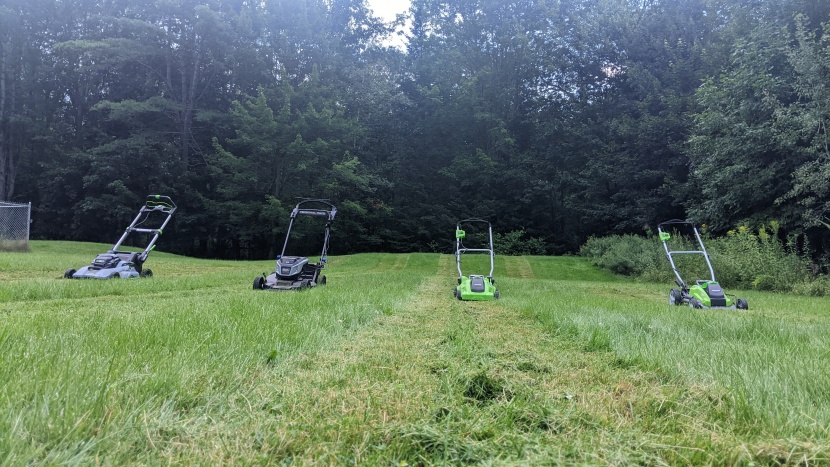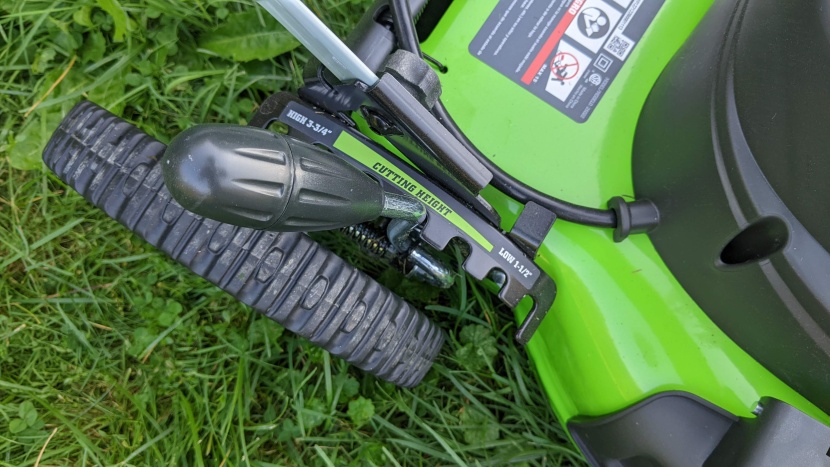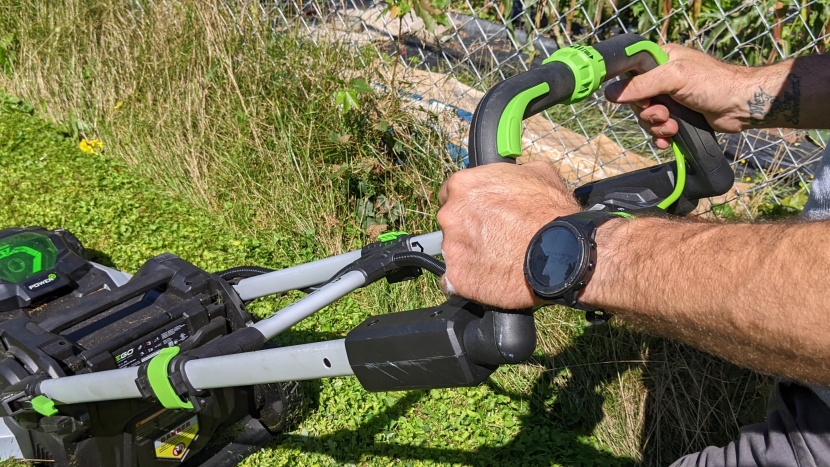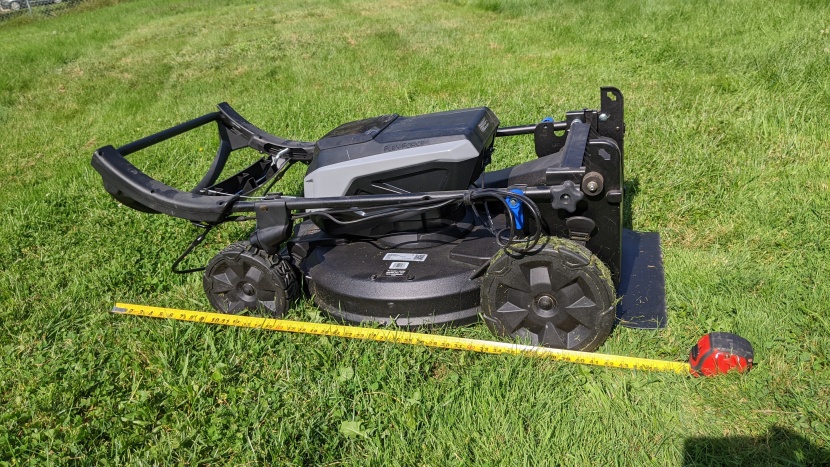The right lawn mower can make an onerous chore downright pleasant. To help you find the perfect tool to keep your lawn healthy and happy we tested every aspect of these mowers side by side. This is how we did it.
Mowing
How well a mower's blade works is obviously important, but so there is so much more to mowing than just cutting grass. We check to see how well each blade cuts, how effectively each deck navigates challenging terrain like divots and ditches, and how well each mower mulches or bags your grass. We also measure the width and height setting of each deck.
Performance and Power
To assess performance and power, we line the mowers up on a tragically neglected lawn and take two passes at a consistent pace with each machine, walking the length of the lawn and back. On the return trip, we are careful to keep one tire in the track from the previous track to see if the mower leaves a mohawk behind or makes the most of every turn without requiring you to overlap your passes.
After making two passes with each machine, we carefully examine the results, ranking each mower by the evenness and consistency of its cut.
Mulching and Bagging
We conducted this test using both mulching and bagging modes for the mowers that have both, ensuring we use the correct blade for the task.
After cutting in mulching mode, we walk through the cuts and rake up the composed remains. We judge them by how evenly the cut grass is spread and how finely it is chopped. We also note any large clumps and whether or not the debris clogged the blade at any point during the test.
To test bagging mode, we repeat the process, making similar passes and observing how well the system works. We look to see if grass escapes the bag along, how well the bag loads, if the system clogs, and how well the mower works when the bag is full. We also note and rank how easy it is to remove, empty, and replace each bag.
Terrain Management
It's one thing to cut beautifully consistent grass on a perfectly flat lawn, it's another to handle dips and divots. The width of the wheelbase and rigidity of the deck both play a role in how well a lawnmower rolls with the terrain.
To test this, we make sure each lawnmower tackles a challenging portion of the yard during our mowing tests, and then we judge and rank the results.
Deck Height Adjustments and Cutting Deck Size
Using a tape measure, we note and measure each deck height adjustment. Then we measure the dimensions of the cutting deck, including the width between the front wheels, the blade length, and the width of one strip of mowed grass. This gives us a solid understanding of each mower's cutting capacity.
Power Source
In this review, we compare lawn mowers powered by gas, batteries, and electrical cord. For gas-powered mowers, we measure the runtime of one tank of gas. For battery options, we measure the runtime while mulching and bagging. We also note how long it takes to charge each battery and their amp hours. Then we account for how many batteries come with the machine. For corded mowers, we determined the maximum extension cord length to assess the mowers' range.
Handling
With the advent of self-propelled lawn mowers, there is more variance than ever before in how well they handle. Here are the tests we conduct to let you know which one is the best.
Starting/Stopping
We start by comparing how easy it is to start and stop each mower.
Pushing and Turning
If the mower is self-propelled, we compare the effort required to push it on flat ground, on slight up and downhill sections, and on steeper slopes.
We also assess how maneuverable each machine is by setting up an obstacle course and judging how well they perform. We also note how easy it is to navigate everyday obstructions like trees, buildings, and the turn at the end of every row. We also compare how easy it is to mow with and without the bag attached.
Bail Bar and Safety
We note if the bail bar is easy to hold in place and whether or not it catches on anything easily. To ensure our safety, we confirm that each blade stops immediately when the bail bar is released.
Ease of Use and Maintenance
To test how easy each mower is to use and maintain, we start by reviewing the manual and judging how easy it is to understand and use. Then we assess how easy it is to change blades and to fold and store each mower and measure their folded dimensions to determine storage convenience.
We also compare how easy or difficult it is to adjust the height of each mower and note any safety features, or the lack thereof.
For electric, non-corded options, we test and compare how easy it is to check the batteries' status, to place and remove the battery, and to start the engine.

